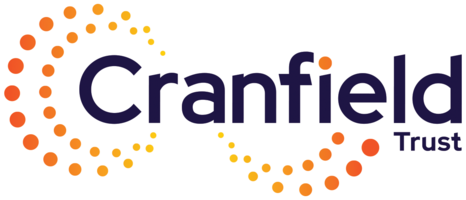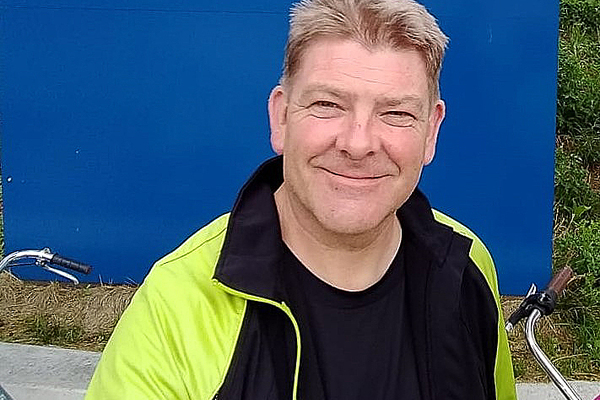I suspect that as we face the cost of living crisis, many trustees and boards are feeling increased pressure and examining ways to improve the quality and impact of their decision making. Not unreasonably, and hard on the heels of covid, charities and their beneficiaries will need trustees with a high level of engagement, and also, a similarly high level of contribution as we face uncertain times. As we move into Trustees' week 2022, two recurrent questions have been asked of me by trustees:
What makes a really great trustee, and how do I become one?
So, how do trustees build this high level of engagement and contribution? Like most tough questions, there are seldom easy answers! Below I offer some practical advice and quick wins for trustees wanting to build their engagement and contribution during challenging and changing times.
To move forward, we often have to take a step back. In this case, we need to examine the reasons why some trustees feel low levels of engagement and potentially, their contribution to the boards and beneficiaries they serve. Sometimes the reasons lie in the 'bricks and mortar' of the boards and charities that they serve. For example, tired boards - boards who have lost focus, or boards who are distracted by detail rather the bigger picture. But let us not forget that boards are composed of trustees and trustees are people. And, it is within their gift to become more engaged and make a bigger or better contribution. Active trusteeship is the weft and warp of a successful charity.

The starting point
Knowing what sort of trustee you are currently is an excellent starting point on your journey towards being a great trustee, and so I pose the first of two questions: ‘How much engagement and contribution do I really make to my charity’ and ‘why is that my level of engagement’?
How much engagement and contribution do I really make? is tough question, but, an honest starting point. If you are really engaged and make a huge contribution, then read no further albeit, you may achieve the final gloss to a great performance! If, however, you have slight or nagging doubts, then please read on. The following insights may well be your passport to the premier league of trusteeship!
Onto my second question, 'Why is this my level of engagement and contribution"? Now, the answer to this may be extrinsic to you - much as I alluded to when I mentioned the 'bricks and mortar' of some boards or, it may be intrinsic to you. If it is intrinsic to you then common factors limiting engagement and contribution I have observed are confidence, comfort and knowledge of the role. For the most part, trustees are 'willing souls' - eager and keen but lacking fluency and deep knowledge of what they can contribute.
None of us are born trustees; it is a skill that is acquired through insight and practice. On one hand, you need mastery of what may be called 'legal governance'. By this I mean the 'rules of the game', much like a referee must be well versed in the rules of the game to ensure it is played fairly and properly. On the other hand, you need to master what I call 'practical governance', by which I mean 'the skills of playing the game', something altogether much harder to enact - despite the cries of the armchair pundit! The practical governance skills you need to master are remarkably few and to complete the sporting analogy, you don't learn them from the touchlines.
1. Trustee mindset
Firstly, cultivating a 'trustee mindset' is crucial to success. In plain English this means the skills of being able to challenge board business constructively. Now, challenge needs to be levelled at the probity of board business (is it legally, morally, socially right) and also at the value board business delivers to the beneficiaries of your charity (are you sustaining or increasing the value for them relative to the resources employed?). Challenge levelled from these two aspects are great cornerstones of the trustee mindset - they keep you focused in the right places.
2. Follow the £s
Secondly, develop a nose for 'following the £s'. This is the number one tip I always give to new trustees. For the most part, I see many trustees who are uncomfortable with 'the numbers' as though they are some impenetrable code known only to the 'gifted few'.
Simply following the £s will increase your engagement and contribution:
- Where do the £s come in?
- What happens to them?
- What is the value delivered to our beneficiaries for those £s deployed?
If you are not getting clear answers, then stick with these three questions - they are going to become even more valuable in the challenging times that lie ahead. They are also the bones of the most basic yet effective board report imaginable (but I will save that for a future piece).
3. Trustee altitude
Thirdly, develop a sense of 'altitude' as a trustee. Now, I am not suggesting you take up flying but, analogous to a skilled pilot you need to see the direction of the charity and keep it on course despite the odd bump, thump or rowdy passenger! Being sucked into the detail is often easier than staying at altitude. Sticking to the bigger picture and working through the challenges, with only the detail that is truly important, is a hallmark of great trustees. And, in the tough times that may lie ahead, a compass and a map may be more useful than a magnifying glass.
4. Take work from the board
Fourthly, take work from the board. This is a great way of improving engagement and also, gaining real insight. In sum, it is an almost instant 'skill builder'. Even in small charities I see some boards swimming in administrative burden and to be honest, for no good effect. The judicious use of sub-committees or trustees stepping in and leading an important piece of work can free up valuable time elsewhere to help advance the charity. Think laterally about how you can take work from the board - so, how your ambassadorial skills as a trustee can better help the charity or, how you can engage with beneficiaries to bring their voice into the boardroom
5. Leave a legacy
Lastly, leave a legacy! You may never win the 'world cup' of trusteeship in your tenure as a trustee but, with a bit more engagement and contribution, you may just leave the world in a better place than you found it.
Stephen Cahill is a semi-retired executive with extensive senior experience across the public, private and charity sectors. He specialises in helping organisations to achieve rapid results by focusing on,"the things that really matter". He has been active with The Cranfield Trust for nearly a decade and is currently our Regional Manager in Scotland.




